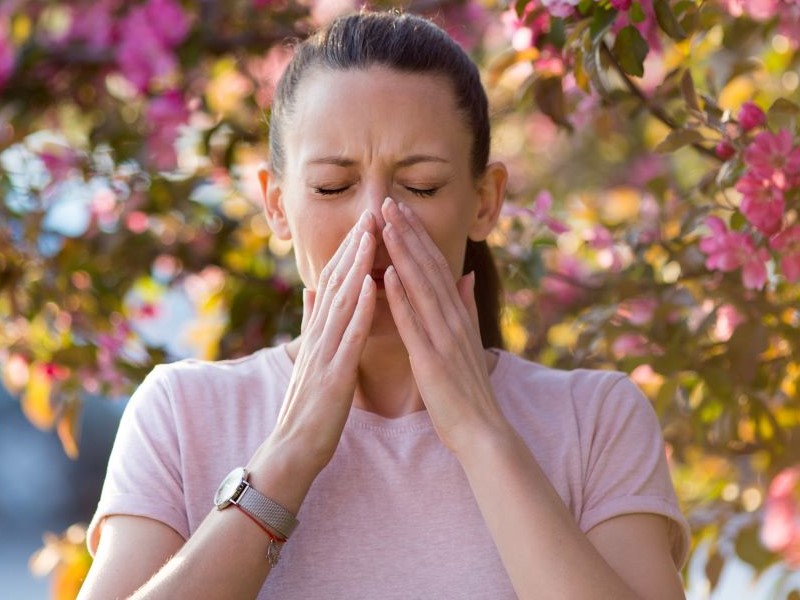As spring arrives, you might be wondering if it’s safe to take over-the-counter medicines for hay fever if you have a heart or circulatory condition.
The answer depends on which type of medicine you take, as some are safer than others.
Hay fever is when your body reacts to particles in the air like pollen or pollution, and is an allergy.
There are several types of medicines you can take to ease symptoms that include sneezing, coughing, a runny or blocked nose, and itchy red or watery eyes.
The 3 main ones are steroid nasal sprays, antihistamines and decongestants.
Steroid nasal sprays containing drugs like beclomethasone (Beconase), budesonide (Benacort) and fluticasone (Pirinase) are often the first port of call for people suffering from hay fever.
They reduce inflammation in the nose and sinuses, and are considered safe for people with high blood pressure (hypertension) and heart and circulatory conditions. Make sure you stick to the recommended dose.

Antihistamines, like loratadine (Clarityn) and cetirizine (Piriteze), are also widely used. They work by blocking chemicals in your blood called histamines that cause hay fever symptoms. They are generally safe for people with high blood pressure and heart and circulatory diseases.
However, another type of antihistamine, called fexofenadine (Allevia or Telfast), can lead to a fast or irregular heartbeat and you should talk to your doctor or pharmacist before taking it.
Also, some older antihistamines, like chlorphenamine (Piriton), can cause drowsiness and so might not be the best choice if you already have fatigue from a heart condition.
Want to get fit and healthy?
Sign up to our fortnightly Heart Matters newsletter to receive healthy recipes, new activity ideas, and expert tips for managing your health. Joining is free and takes 2 minutes.
I’d like to sign-up
Decongestants also require caution, this is because some contain drugs like pseudoephedrine (Sudafed) that constrict blood vessels. This can raise your blood pressure and heart rate and cause palpitations.
Because of this, the NHS does not recommend decongestants for anyone with high blood pressure or a heart or circulatory disease.
If you need a decongestant, talk to your doctor or pharmacist, and always read the medicine information leaflet before taking a hay fever medication as some combine antihistamines with decongestants.
If you experience heart palpitations, which feel like your heart is racing or skipping a beat, after taking a hay fever medicine, stop taking it and consult your doctor.
Meet the expert
Julie Ward is a Senior Cardiac Nurse at the British Heart Foundation.
What to read next...










